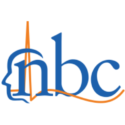Can Biofeedback Be Used to Treat Headaches?
Biofeedback is one of the behavioral medicine techniques that’s been proven to reduce headaches and improve on the quality of functioning. When it’s employed regularly and also combined with preventative medication, quality of life is then significantly better than with medication by itself.
Physical and mental tension can most certainly make your headaches feel worse. But just by telling someone to relax, that’s not going to help you deal with deadlines, honking horns, crying babies, demanding bosses, missed sleep, and unpaid bills, just to name a couple of hassles in everyday life. Relaxation truly is a skill. Like any other skill, it can in fact be mastered with practice, time, and a very good instructor. There are quite a few mind and body approaches that will help you to ease tension and improve your pain tolerance. Some of them have proven track records in the prevention of headaches, or in the reduction of their severity.
Biofeedback for Headaches
Biofeedback is one of the most widely accepted non-drug techniques for the control and prevention of headaches. Biofeedback and relaxation training can typically offer a 45% to 60% overall reduction in headache severity and frequency. This is actually equivalent to the reduction in headaches that have been achieved by many headache medications, such as amitriptyline and propranolol, but without any of the many negative side effects. The most common limitation of biofeedback, as well as relaxation training, is actually that it requires a bit of time commitment, as well as implementation effort on behalf of the patient. For headache sufferers, the combination of drug and non-drug treatments holds a significant improvement in headache reduction. The average improvement with biofeedback or propranolol is 55% reduction in migraines.
To learn more about treating headaches with Biofeedback call Northwest Biofeedback Center at 847-627-8164 in Des Plaines or 224-334-3070 in Schaumburg.

